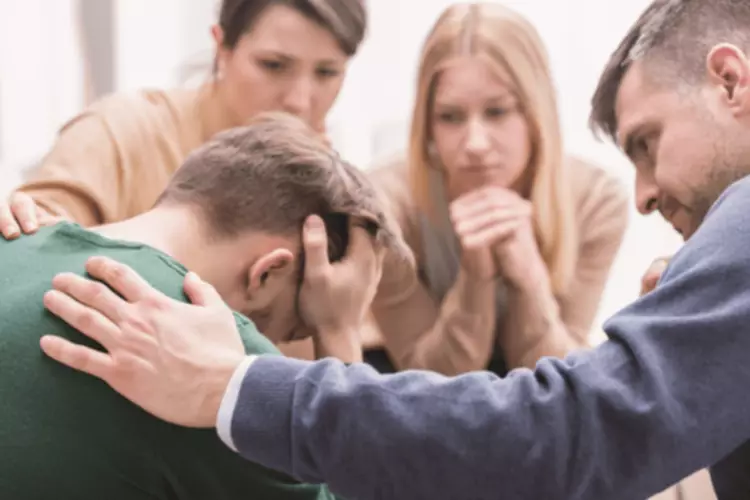Content
With an awareness of potential triggers and a plan in place for avoiding them, you can work towards achieving long-term sobriety. Moving Mountains takes a whole-person approach to recovery by offering a continuum of care, clinically https://ecosoberhouse.com/article/alcohol-addiction-treatment-how-to-make-alcohol-recovery-sustainable/ proven treatments, and holistic healing. We work closely with you to identify your unique needs, facilitate individualized treatments, and help you establish a foundation upon which your recovery–and the rest of your life–can grow.
- The key to suppressing these feelings is being aware of the internal triggers and the ability to seek support whenever needed.
- Both of these behavior triggers can both be used to build habits.
Our compassionate, friendly staff is available 24-hours a day to take your call and help you begin your recovery journey. To identify what things could be triggers, a good place to start is making a list of people, places, and things that were prevalent in active addiction. People can have a sponsor, sober support, or therapist help them create a list. Once a list is made, the next thing to do is to decide what boundaries need to be set. They can be a wide range of things, such as a social situation to something shown in a movie.
Is Rehab Worth The Time And Money?
This relapse stage is typically characterized by the acronym HALT, which stands for hungry, angry, lonely, and tired. Objects like syringes, wine glasses, pill bottles, or pipes may be difficult for you to look at. These objects may remind you of your previous use and can cause you to linger on thoughts of using drugs or alcohol with old buddies or alone at your home. In early recovery, it is essential to stay distant from old friends you knew while using. Use the time away to reflect on who in the crowd you hang out with is a friend or somebody you like to party together. While getting back to seeing old friends, focus who is a real friend and will support you during the transition.
These may be more difficult for the individual to remove, as they’re emotional responses that trigger the desire to use. When loneliness sets in, it can cause cravings for the addictive substances that has brought one into recovery in the first place. HALT can help you in recovery by reflecting and being honest with yourself if you are lonely. If you are feeling this way, it is time to reach out to your support system.
Develop a Strong Support Network with Other Recovering Addicts
They might include certain styles of music or specific songs, or the taste of a drug. For example, powdered sugar or artificial sweetener, which resembles powdered drugs, can be a powerful trigger for people who used cocaine, methamphetamines, or heroin. Freebasing cocaine is a highly addictive method of cocaine use that presents various dangers to the user’s health. Read below to learn about these dangers and the importance of addiction treatment therapy. Sometimes memories that we perceive to be happy are deeply intertwined with addictions or past addictive behaviors, which can lead to reminiscing about one-time use. This reminiscence of times when the addiction was in control is often a sign of the addiction trying to take over the brain again.
This will not only help sober people stay sober; it will also educate those who don’t fully understand the disease of addiction. For someone in drug addiction recovery, triggers link the brain back to something in addiction that causes the cravings to use. Triggers and cravings are not permanent and will quickly pass when dealt with in a healthy way. Feel free to contact us at any time to discuss our recovery programs and approach to tackling addiction triggers. As a trusted organization for recovery and addiction treatment in Iowa, we are proud to help people become more educated about—and less vulnerable to—substance use triggers.
Re-Understanding the Trigger
As a person recovers from addiction, they may experience strong desires to return to the substances they have abused in the past. In this blog post, we’ll discuss what a relapse trigger is and identify the different types of triggers. Whether your triggers are emotional internal and external triggers distress or a specific situation, it is essential that you know what compels you to use when trying to lead a life of sobriety. Understanding what triggers you to relapse and having a plan in place for these triggers are your first steps toward prevention.

Meditation is a practice of focusing on quieting the mind to cultivate clarity, serenity, and insight. Understanding relapse triggers and coping with cravings is essential in maintaining sobriety and developing better habits. Triggers provide a perfect example of why staying sober isn’t as simple as it seems.
Importance of Nutrition in Recovery
Research suggests that people who have used drugs in order to mitigate stress in the past are likely to return to this behavior when future stressors arise. This would suggest that someone in recovery could be prone to relapse due to an elevated level of stress in life. Physical relapse may also occur when the individual thinks they won’t get caught.
By becoming aware of the environment or people that increase the risk of using or craving, a person can create boundaries to reduce temptation. Taking the time to identify and recognize high-risk situations can help individuals stay safer on their road to recovery. Individuals in recovery need to be aware of their psychological triggers to manage them appropriately and reduce the risk of relapse due to these mental health issues. The triggers can be broken down into several categories, including environmental, emotional, behavioral, and psychological. By knowing what common addiction triggers exist, you can better manage them and take steps to avoid relapse. We publish material that is researched, cited, edited and reviewed by licensed medical professionals.
